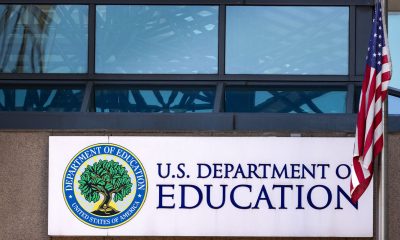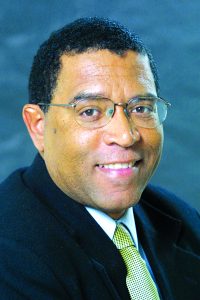#NNPA BlackPress
Black-Owned Newspapers and Media Companies Are Small Businesses Too!
NNPA NEWSWIRE — “Dear World, the entire planet is feeling the devastation of the coronavirus pandemic,” Cheryl Smith of Texas Metro News wrote to her readers. “We must be concerned about ourselves, as well as others. You may be aware that the media is considered ‘essential.’ So, guess what? We have a responsibility, a moral obligation to use this status to be a source of information, support, and inspiration, just as we are at all other times,” Smith wrote.
Financial Support is Essential to Delivery of These Essential Services
By Stacy M. Brown, NNPA Newswire Senior Correspondent
@StacyBrownMedia
Publishers of Black-owned community newspapers, including Janis Ware of the Atlanta Voice, Cheryl Smith of Texas Metro News, Chris Bennett of the Seattle Medium, Denise Rolark Barnes of the Washington Informer, and Brenda Andrews of the New Journal & Guide in Virginia, are desperately trying to avoid shuttering operations.
On Wednesday, April 29, Rolark Barnes, Andrews, Bennett, and Ware will participate in a special livestream broadcast to discuss how their publications are enduring as the pandemic rages on.
In a heartfelt and straight-to-the-point op-ed published recently, Ware explained to her tens of thousands of readers that The Atlanta Voice has boldly covered the issues that affect the African American community.
“Our founders, Mr. J. Lowell Ware and Mr. Ed Clayton, were committed to the mission of being a voice to the voiceless with the motto of, ‘honesty, integrity and truth,’” Ware wrote in an article that underscores the urgency and importance of African American-owned newspapers during the coronavirus pandemic. Ware has established a COVID-19 news fund and aggregated the Atlanta Voice’s novel coronavirus coverage into a special landing page within its website.
To remain afloat, Ware and her fellow publishers know that financial backing and support will be necessary. Following the spread of the pandemic, many advertisers have either paused their ad spending or halted it altogether. And other streams of revenue have also dried up, forcing Black-owned publications to find ways to reduce spending and restructure what were already historically tight budgets.
With major companies like Ruth Chris Steakhouse and Pot Belly Sandwiches swooping in and hijacking stimulus money aimed at small businesses, the Black Press — and community-based publishing in general — has been largely left out of the $350 billion stimulus and Paycheck Protection Program packages.
To make matters worse, there are no guarantees that a second package, specifically focused on small business, will benefit Black publishers or other businesses owned by people of color.
Publications like the New Journal and Guide, Washington Informer (which recently celebrated its 55th anniversary) and the Atlanta Voice have been essential to the communities they serve — and the world at large for 193 years.
Unfortunately for some publishers, the impact of COVID-19 has brought business operations to a near halt. While none are thriving, some publishers have developed ingenious and innovative ways to continue operations.
“Dear World, the entire planet is feeling the devastation of the coronavirus pandemic,” Cheryl Smith of Texas Metro News wrote to her readers. “We must be concerned about ourselves, as well as others. You may be aware that the media is considered ‘essential.’ So, guess what? We have a responsibility, a moral obligation to use this status to be a source of information, support, and inspiration, just as we are at all other times,” Smith wrote.
Smith’s statements echo the more than 200 African American-owned newspapers in the NNPA family. The majority of the publications are owned and operated by women, and virtually all are family dynasties so rarely seen in the black community.
The contributions of the Black Press remain indelibly associated with the fearlessness, determination, and success of Black America.
Those contributions include the works of Frederick Douglass, WEB DuBois, Patrice Lumumba, Kwame Nkrumah, and former NNPA Chairman Dr. Carlton Goodlett.
Douglas, who helped slaves escape to the North while working with the Underground Railroad, established the abolitionist paper, “The North Star,” in Rochester, New York.
He developed it into the most influential black anti-slavery newspaper published during the Antebellum era.
The North Star denounced slavery and fought for the emancipation of women and other oppressed groups with a motto of “Right is of no Sex – Truth is of no Color; God is the Father of us all, and we are all brethren.”
DuBois, known as the father of modern Pan Africanism, demanded civil rights for Blacks but freedom for Africa and an end to capitalism, which he called the cause of racism and all human misery.
Many large news organizations have begun targeting African Americans and other audiences of color by either acquiring Black-owned news startups or adding the moniker “Black” to the end of their brand. However, it was Black-owned and operated news organizations that were on the front lines for voting rights, civil rights, ending apartheid, fair pay for all, unionization, education equity, healthcare disparities and many other issues that disproportionately negatively impact African Americans.
Today, the Black Press continues to reach across the ocean where possible to forge coalitions with the growing number of websites and special publications that cover Africa daily from on the continent, Tennessee Tribune Publisher Rosetta Perry noted.
The evolution of the Black Press, the oldest Black business in America, had proprietors take on issues of chattel slavery in the 19th century, Jim Crow segregation and lynching, the great northern migration, the Civil Rights Movement, the transformation from the printing press to the digital age and computerized communication.
With the Plessy vs. Ferguson Supreme Court ruling that said no black man has any rights that a white man must honor, there came a flood of Black publications to advocate for Black rights and to protest the wrongs done to Blacks.
An expose in Ebony Magazine in 1965 alerted the world to a Black female engineer, Bonnie Bianchi, who was the first woman to graduate from Howard University in Electrical Engineering.
It was through the pages of the Black Press that the world learned the horrors of what happened to Emmett Till.
The Black Press continues to tackle domestic and global issues, including the novel coronavirus pandemic and its effects on all citizens – particularly African Americans.
It was through the pages of the Black Press that the world learned that COVID-19 was indeed airborne and that earlier estimates by health experts were wrong when they said the virus could last only up to 20 to 30 minutes on a surface.
Now, it’s universally recognized that the virus can last for hours on a surface and in the air.
“A few short weeks ago, life as we know it, was pretty different,” Ware told her readers. “These are unprecedented times, and we are working around the clock to provide the best possible coverage, sometimes taking risks to keep Metro Atlanta informed.”
Tune in to the livestream at www.Facebook.com/BlackPressUSA.
#NNPA BlackPress
Chavis and Bryant Lead Charge as Target Boycott Grows
BLACKPRESSUSA NEWSWIRE — Surrounded by civil rights leaders, economists, educators, and activists, Bryant declared the Black community’s power to hold corporations accountable for broken promises.

By Stacy M. Brown
BlackPressUSA.com Senior National Correspondent
Calling for continued economic action and community solidarity, Dr. Jamal H. Bryant launched the second phase of the national boycott against retail giant Target this week at New Birth Missionary Baptist Church in Atlanta. Surrounded by civil rights leaders, economists, educators, and activists, Bryant declared the Black community’s power to hold corporations accountable for broken promises. “They said they were going to invest in Black communities. They said it — not us,” Bryant told the packed sanctuary. “Now they want to break those promises quietly. That ends tonight.” The town hall marked the conclusion of Bryant’s 40-day “Target fast,” initiated on March 3 after Target pulled back its Diversity, Equity, and Inclusion (DEI) commitments. Among those was a public pledge to spend $2 billion with Black-owned businesses by 2025—a pledge Bryant said was made voluntarily in the wake of George Floyd’s murder in 2020.“No company would dare do to the Jewish or Asian communities what they’ve done to us,” Bryant said. “They think they can get away with it. But not this time.”
The evening featured voices from national movements, including civil rights icon and National Newspaper Publishers Association (NNPA) President & CEO Dr. Benjamin F. Chavis Jr., who reinforced the need for sustained consciousness and collective media engagement. The NNPA is the trade association of the 250 African American newspapers and media companies known as The Black Press of America. “On the front page of all of our papers this week will be the announcement that the boycott continues all over the United States,” said Chavis. “I would hope that everyone would subscribe to a Black newspaper, a Black-owned newspaper, subscribe to an economic development program — because the consciousness that we need has to be constantly fed.” Chavis warned against the bombardment of negativity and urged the community to stay engaged beyond single events. “You can come to an event and get that consciousness and then lose it tomorrow,” he said. “We’re bombarded with all of the disgust and hopelessness. But I believe that starting tonight, going forward, we should be more conscious about how we help one another.”
He added, “We can attain and gain a lot more ground even during this period if we turn to each other rather than turning on each other.” Other speakers included Tamika Mallory, Dr. David Johns, Dr. Rashad Richey, educator Dr. Karri Bryant, and U.S. Black Chambers President Ron Busby. Each speaker echoed Bryant’s demand that economic protests be paired with reinvestment in Black businesses and communities. “We are the moral consciousness of this country,” Bryant said. “When we move, the whole nation moves.” Sixteen-year-old William Moore Jr., the youngest attendee, captured the crowd with a challenge to reach younger generations through social media and direct engagement. “If we want to grow this movement, we have to push this narrative in a way that connects,” he said.
Dr. Johns stressed reclaiming cultural identity and resisting systems designed to keep communities uninformed and divided. “We don’t need validation from corporations. We need to teach our children who they are and support each other with love,” he said. Busby directed attendees to platforms like ByBlack.us, a digital directory of over 150,000 Black-owned businesses, encouraging them to shift their dollars from corporations like Target to Black enterprises. Bryant closed by urging the audience to register at targetfast.org, which will soon be renamed to reflect the expanding boycott movement. “They played on our sympathies in 2020. But now we know better,” Bryant said. “And now, we move.”
#NNPA BlackPress
The Department of Education is Collecting Delinquent Student Loan Debt
BLACKPRESSUSA NEWSWIRE — the Department of Education will withhold money from tax refunds and Social Security benefits, garnish federal employee wages, and withhold federal pensions from people who have defaulted on their student loan debt.

By April Ryan
Trump Targets Wages for Forgiven Student Debt
The Department of Education, which the Trump administration is working to abolish, will now serve as the collection agency for delinquent student loan debt for 5.3 million people who the administration says are delinquent and owe at least a year’s worth of student loan payments. “It is a liability to taxpayers,” says White House Press Secretary Karoline Leavitt at Tuesday’s White House Press briefing. She also emphasized the student loan federal government portfolio is “worth nearly $1.6 trillion.” The Trump administration says borrowers must repay their loans, and those in “default will face involuntary collections.” Next month, the Department of Education will withhold money from tax refunds and Social Security benefits, garnish federal employee wages, and withhold federal pensions from people who have defaulted on their student loan debt. Leavitt says “we can not “kick the can down the road” any longer.”
Much of this delinquent debt is said to have resulted from the grace period the Biden administration gave for student loan repayment. The grace period initially was set for 12 months but extended into three years, ending September 30, 2024. The Trump administration will begin collecting the delinquent payments starting May 5. Dr. Walter M. Kimbrough, president of Talladega College, told Black Press USA, “We can have that conversation about people paying their loans as long as we talk about the broader income inequality. Put everything on the table, put it on the table, and we can have a conversation.” Kimbrough asserts, “The big picture is that Black people have a fraction of wealth of white so you’re… already starting with a gap and then when you look at higher education, for example, no one talks about Black G.I.’s that didn’t get the G.I. Bill. A lot of people go to school and build wealth for their family…Black people have a fraction of wealth, so you already start with a wide gap.”
According to the Education Data Initiative, https://educationdata.org/average-time-to-repay-student-loans It takes the average borrower 20 years to pay their student loan debt. It also highlights how some professional graduates take over 45 years to repay student loans. A high-profile example of the timeline of student loan repayment is the former president and former First Lady Barack and Michelle Obama, who paid off their student loans by 2005 while in their 40s. On a related note, then-president Joe Biden spent much time haggling with progressives and Democratic leaders like Senators Elizabeth Warren and Chuck Schumer on Capitol Hill about whether and how student loan forgiveness would even happen.
#NNPA BlackPress
VIDEO: The Rev. Dr. Benjamin F. Chavis, Jr. at United Nations Permanent Forum on People of African Descent
https://youtu.be/Uy_BMKVtRVQ Excellencies: With all protocol noted and respected, I am speaking today on behalf of the Black Press of America and on behalf of the Press of People of African Descent throughout the world. I thank the Proctor Conference that helped to ensure our presence here at the Fourth Session of the […]

Excellencies:
-

 Activism4 weeks ago
Activism4 weeks agoOakland Post Endorses Barbara Lee
-

 Activism3 weeks ago
Activism3 weeks agoOakland Post: Week of April 2 – 8, 2025
-

 #NNPA BlackPress3 weeks ago
#NNPA BlackPress3 weeks agoTrump Profits, Black America Pays the Price
-

 Activism2 weeks ago
Activism2 weeks agoOakland Post: Week of April 9 – 15, 2025
-

 #NNPA BlackPress3 weeks ago
#NNPA BlackPress3 weeks agoHarriet Tubman Scrubbed; DEI Dismantled
-

 #NNPA BlackPress3 weeks ago
#NNPA BlackPress3 weeks agoTrump Targets a Slavery Removal from the National Museum of African-American History and Culture
-

 #NNPA BlackPress3 weeks ago
#NNPA BlackPress3 weeks agoLawmakers Greenlight Reparations Study for Descendants of Enslaved Marylanders
-

 #NNPA BlackPress3 weeks ago
#NNPA BlackPress3 weeks agoNew York Stands Firm Against Trump Administration’s Order to Abandon Diversity in Schools






















































Pingback: Panafricanmedia Networks
Pingback: Black Athletes, Black Journalists at Risk - journal-isms.com